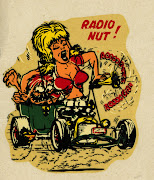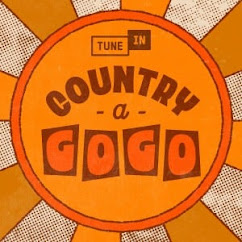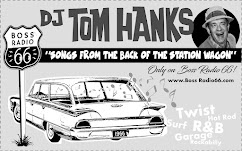 |
| May 3, 1933 - December 25, 2006 |
TuneIn
Sunday, May 3, 2015
Monday, May 28, 2012
James Brown Month: RJ Smith Interview Part III
The final installment of our interview with The One author RJ Smith.
ICHIBAN: How in the world did James Brown have time to do everything that he did for himself AND produce the number of records he produced for other people? Do you have any insights on how involved he was in productions, or was it more of a brand name thing?
RJ SMITH: My sense is those numerous productions happened every way possible – some were cut without him being anywhere NEAR the studio. Some were built on ideas he had talked out with the musicians, or with JB stopping by the studio without being much invested in the moment. And some happened with JB at the center of the action. Then again, as Jim Dickinson once told me, sometimes the guy who brings the coffee is the one who really produces the session – you never know what is going to be the catalyst. It’s a mystery.
 |
| "Needs more . . ." |
I think Brown got the attention he craved, and the sustenance he needed to survive, first from dancing, and a little later from singing. He learned he had a mastery over audiences first by moving to a rhythm.
An amazing thing – and maybe in the end, the most amazing thing – about Brown was how he carried the lore of the African diaspora as fully as anybody ever did. I think he was listening to everything, and was influenced by all kinds of things (I’m struck for instance by how every time he was coming to LA in the late 50s/early 60s, he seemed to get paired with a mambo band. Wonder what he took from that!) I suspect he heard a lot more African sounds coming through the Cuban and Puerto Rican music – boogaloo! – around him in the streets while he was living in NYC in the ‘60s than from whatever Afro pop itself he might have heard. I think his piling of poly-rhythms has everything to do with being a profoundly responsive African-American from the South – and not just any part of the South, but South Carolina, with a very particular role in the slave trade, and a very specific and rich slave culture. The mystery of the guy is how he became this clear channel signal for the culture of the slave south – it was fragmented and outlawed during and after slavery, yet James Brown put it all together and made America feel it. I bet he didn’t even totally know how it happened – I’m sure he never would have talked about it, because his most comfortable line on Africa’s influence on him was that while, sure, he heard some overlaps, he wasn’t playing African music, he was playing James Brown music! He wasn’t going to acknowledge anything beyond his own innate genius.
In this age where everything is recycled from the past, how in the world is it that JB's amazing TV show Future Shock is not available as a DVD box set?
You speak wisdom. I thought the film and whatever documentation of it were in the posession of Ted Turner, who apparently would sometimes come in from a night of Atlanta partying and hang out with Brown on the set. But someone recently suggested that CNN now owns the recordings as part of the deal that Turner signed over. It kills me that this stuff is not on DVD, accompanied by a deluxe booklet with notes by Pete Relic and Questlove. Not right.
What, to your mind, is the last great James Brown recording/single?
One day when I was sitting in court in Aiken, SC listening to lawyers and family members arguing about who should get what, they started complaining about the alleged disappearance of a number of masters found in Brown’s pool house. Among them was a master recording of Johnny Paycheck! How the heck could that be? Since then I’ve wondered if JB and JP did some kind of thing together. Maybe THAT’s the last great Brown recording.
 |
| Mind. Blown. GET READY YOU MOTHERS, FOR THE BIG PAYCHECK! |
Regarding Lyn Collins, I recall her complaining in an interview in a British magazine that Brown had installed a telephone, like a hotline, in his house so that he could be in constant communication with her and know her every movement. She said dating him was like being in prison.
I've also seen lots of claims, which may have some accuracy, that Brown would paradoxically put out those records by proteges like Lyn and Marva [Whitney] and Bobby [Byrd], but should they start to take off, he'd start calling radio stations and tell them NOT to play the records. In other words, he was pretty okay with these folks feeling indebted to him, by putting out their records, throwing them some money. But if their records started stealing attention from him, he would have to intervene/knock them down - and being the producer, distributor and erstwhile check payer for various folks, he had lots of means at his disposal . . . But I have heard claims specifically about Lyn's version of "Think About It", that when it started heading for the top ten (r&b, I guess), JB began working the phones, calling his DJ connections and telling them to cool their action. How you prove that I don't know, but it seems somewhat plausible.
 |
| "I don't care how good it's doin'! I've got money - now I need love! Shut it down!" |
I wrote out several thousand words on "The Grunt" [a 1970 JB produced instrumental by the Collins kids' version of the JB's], particularly its relationship to 18th and 19th century Cincinnati and how that town was known as Porkopolis. The abundant slaughterhouses used to dump trucks full of spare ribs into the river because they didn't know they tasted good. Wild dogs used to own downtown Cincinnati at night, wild dogs with pieces of meat in their maws scaring the shit out of visiting European ladies and forever shaping their impressions of Ohio and America. I couldn't find the right place for it in the book, but anyway "The Grunt" launched that particular jag. Something about "The Grunt" just leaves a man to thinking about pig flesh and wild dogs. It's that good.
Special thanks to Mr. Smith for taking the time to chat with us about Soul Brother #1. The One can be found at the usual retail and online outlets, for instance here.
Posted by Mr. Soul Motion at 10:00 AM 0 comments
Labels: Dr. Filth, Future Shock, James Brown, JBs, Jim Dickinson, Johnny Paycheck, Lyn Collins, RJ Smith
Saturday, May 26, 2012
JAMES BROWN'S future shock Pt. 4
Posted by Debbie D at 10:04 AM 1 comments
Labels: Debbie D, Future Shock, James Brown Month
Saturday, May 19, 2012
JAMES BROWN'S future shock Pt. 3
Editor's note: Ichiban pal, Fred is looking for an episode of Future Shock from 1976 featuring his band "Sounder". If anyone has any leads, please get in touch!
Posted by Debbie D at 9:53 AM 0 comments
Labels: Debbie D, Future Shock, James Brown Month
Saturday, May 12, 2012
JAMES BROWN'S future shock Pt. 2
Posted by Debbie D at 11:00 AM 1 comments
Labels: Debbie D, Future Shock, James Brown Month
Saturday, May 5, 2012
JAMES BROWN'S future shock! Pt. 1
Posted by Debbie D at 1:38 PM 0 comments
Labels: Debbie D, Future Shock, James Brown Month














